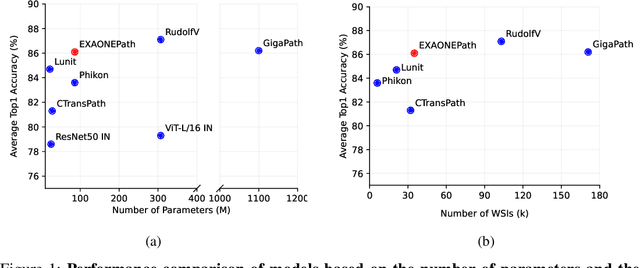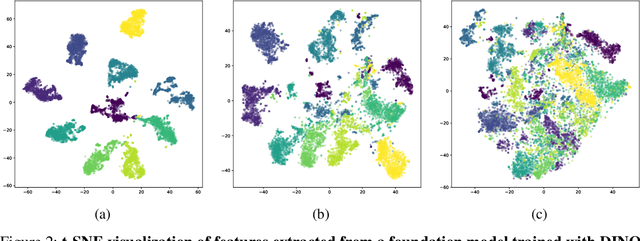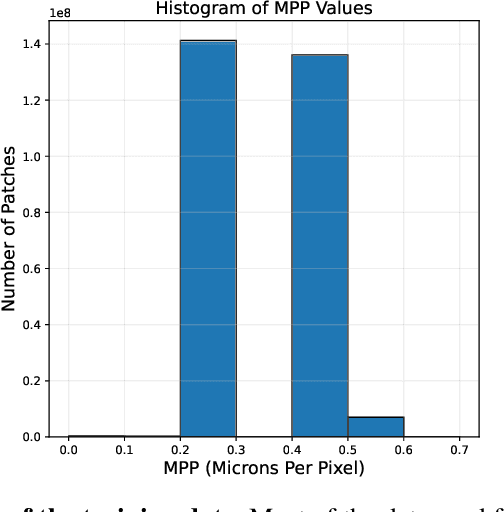Enhancing Whole Slide Pathology Foundation Models through Stain Normalization
Paper and Code
Aug 05, 2024



Recent advancements in digital pathology have led to the development of numerous foundational models that utilize self-supervised learning on patches extracted from gigapixel whole slide images (WSIs). While this approach leverages vast amounts of unlabeled data, we have discovered a significant issue: features extracted from these self-supervised models tend to cluster by individual WSIs, a phenomenon we term WSI-specific feature collapse. This problem can potentially limit the model's generalization ability and performance on various downstream tasks. To address this issue, we introduce Stain Normalized Pathology Foundational Model, a novel foundational model trained on patches that have undergone stain normalization. Stain normalization helps reduce color variability arising from different laboratories and scanners, enabling the model to learn more consistent features. Stain Normalized Pathology Foundational Model is trained using 285,153,903 patches extracted from a total of 34,795 WSIs, combining data from The Cancer Genome Atlas (TCGA) and the Genotype-Tissue Expression (GTEx) project. Our experiments demonstrate that Stain Normalized Pathology Foundational Model significantly mitigates the feature collapse problem, indicating that the model has learned more generalized features rather than overfitting to individual WSI characteristics. We compared Stain Normalized Pathology Foundational Model with state-of-the-art models across six downstream task datasets, and our results show that Stain Normalized Pathology Foundational Model achieves excellent performance relative to the number of WSIs used and the model's parameter count. This suggests that the application of stain normalization has substantially improved the model's efficiency and generalization capabilities.
 Add to Chrome
Add to Chrome Add to Firefox
Add to Firefox Add to Edge
Add to Edge